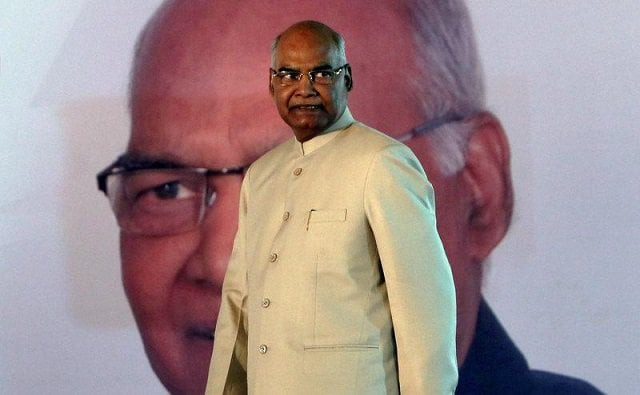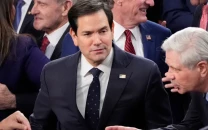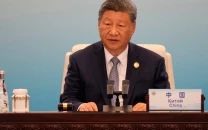Ram Nath Kovind: The lesser known president-elect of India
The move to install a Dalit to the ornamental post seems symbolic

India's President-elect Ram Nath Kovind arrives to attend a ceremony after his victory, in New Delhi, India July 20, 2017. PHOTO: REUTERS
Kovind is a Dalit or untouchable, a lower Hindu caste, reports the BBC.
"I have been writing about Dalits for 27 years. But I first heard of Ram Nath Kovind the day he was nominated for India's next president," says journalist Chandrabhan Prasad.
Kovind had been so unfamiliar in political circles that a media outlet satirically remarked that Indian Prime Minister Narendra Modi and God were the only two aware of his nomination. His name has been searched over 500,000 times on Google ever since the announcement of his candidacy.
Upon declaring Kovind as the party’s nominee, BJP president Amit Shah said he was a Dalit who had "struggled his way up to such a high position in his political career".
The Hindu caste system divides Hindus into hierarchical groups on the grounds of karma (work) and dharma (which translates to religion in English, but means duty in this context). The system consists of four main categories – Brahmins, Kshatriyas, Vaishyas and Shudras. Dalits comprise of the lowest category in the Hindu caste system, and are considered outcasts.
Kovind’s nomination took place at a time when the BJP was being criticised for discriminating on the basis of caste. However, according to prominent Dalits, Kovind’s contributions towards the Dalit cause are largely unknown.
"I go to seminars on Dalits. I write opinion pieces. I appear on TV debates. My job is to work around the subject. But I don't know anything about him," said Prasad.
"He seems to be an educated, conscientious person but I have never heard him comment on the atrocities against the Dalits," another Dalit writer complained. "The move to install a Dalit to the ornamental post is symbolic. Did the appointment of (India's first Dalit president) KR Narayanan help the community in any way? If the ideology of the party is not supportive of the Dalit cause, it doesn't make much difference."
Statement of Jageshwar, a long-time neighbour of Kovind’s and a fellow Dalit, also echoed similar confusion. He was unable to recall whether Mr Kovind, "son of a cloth-seller, ever campaigned for a Dalit cause."
Ramesh Verma, a journalist from Kanpur, says Kovind had kept a low profile and avoided media exposure as he did not want to risk being part of any controversy. Verma also states that he never saw Kovind attend Dalit programmes or claiming to be a Dalit leader.
Kovind has been a member of the RSS, the right-wing nationalist group often considered as the parent organisation of the BJP. He is a lawyer who served two terms in the upper house of parliament, has led a BJP Dalit organisation and held several important positions in the party.
"His closeness to the RSS helped him go places," senior Dalit leader in the BJP Sanjay Paswan said. "Modi and Kovind have known each other for a long time. There is nothing wrong if the PM goes for a man with whom he shares chemistry."
According to Paswan, it is the caste-biasness of the media due to which Kovind’s achievements have not been acknowledged.
"He has been instrumental in installing memorials of Dalit leader BR Ambedkar. He got the name of the welfare ministry changed to the social justice empowerment ministry - a phrase that conveys the true work of the ministry. He did a lot of work for the Dalit cause," says Paswan.
Dalits threaten to convert to Islam after upper castes deny them haircuts
Dr Bizay Sonkar Shastri, another BJP spokesperson, believes Kovind’s "presidential term would help bring forth the real problems of Dalits".
Controversies
Kovind has not been untouched by controversy. According to a 2010 Hindustan Times report, Kovind had said "Islam and Christianity are alien to the nation" at a press conference, calling for rejection of a report that recommended government job reservations for socially and economically disadvantaged groups among religious and linguistic minorities.
"This was a political statement and is still the stand of the BJP. Kovind's statement was a political one and it should be seen in that context," Paswan said.



















COMMENTS
Comments are moderated and generally will be posted if they are on-topic and not abusive.
For more information, please see our Comments FAQ